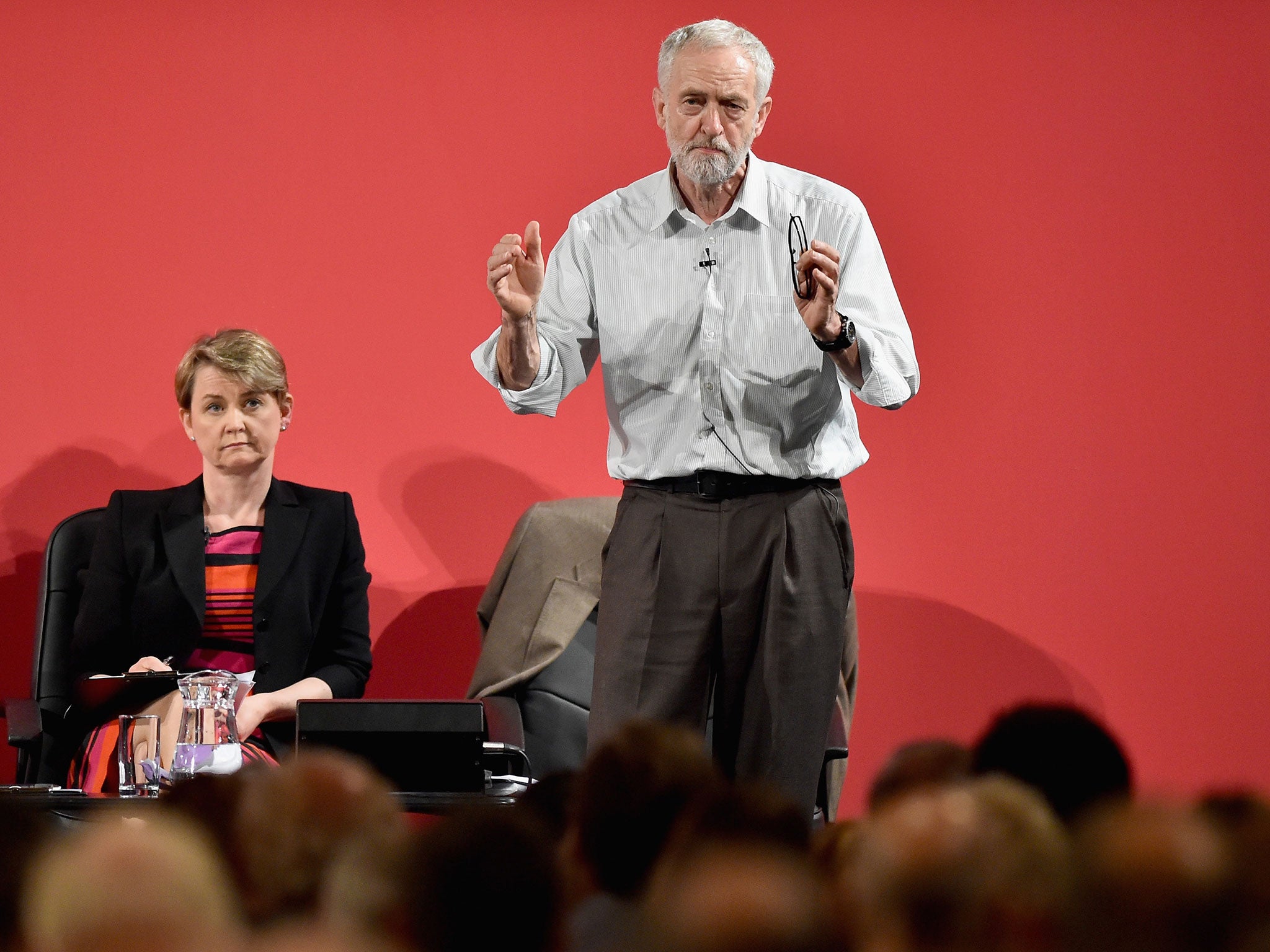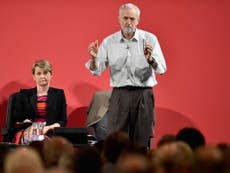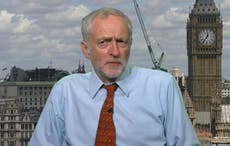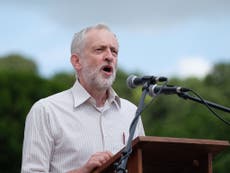Labour leadership race: Most party members and supporters are horrified by the prospect of Jeremy Corbyn winning
Many respect him for his socialist integrity, but they realise he doesn’t even want the job


Jeremy Corbyn is not going to win the Labour leadership election. The Labour Party may be losing its mind, but it is not so far gone that, having lost two elections, it would vote to make sure it loses a third.
I fear that the story of a private poll that put Corbyn in the lead was a desperate ploy by the Liz Kendall campaign. My view is that Kendall is easily the best candidate, and the only one who has a chance of winning the next election for Labour without relying on the Conservatives to fall apart. But I accept that her campaign, after its flying start, has not gone well. She was responsible for the only memorable line of the campaign so far, her reflex retort when Andy Burnham said, “The party comes first, always” – “No, the country comes first.” But otherwise she has failed to hit the strong lines she needs.
She has in my view been admirably reckless in offending the easily offended activists who think the only thing wrong with Ed Miliband was that he was a neo-liberal sellout. But that is not how you win internal elections in the Labour Party. It is long forgotten now, but Tony Blair’s campaign for leader in 1994 was Platitude Central (and a promise to defend a publicly owned railway). David Miliband, for whom a majority of party members voted five years ago, tacked as hard as he could to what was in those days the naive-left idealism of the living wage.
So, I imagine that the private polling was carried out for Kendall’s campaign. Polling of Labour members has been no more accurate than other kinds of polling, and has also been tilted to the left. Last time, YouGov put Ed Miliband four points ahead of his brother when he was nine points behind – he won only because of a stitch-up by the trade union bosses. And “private” polling is always doubtful, because it cannot be checked.
I suspect that it was leaked to try to scare the wing of the party that regards the object of the exercise as being to defeat the Conservatives. Most members and supporters of the Labour Party don’t go to meetings or make much noise on social media, and are horrified by the prospect of Corbyn winning. Many of them may even respect him for his socialist integrity, although most would draw the line a long way before calling Hamas and Hezbollah their “friends”, but they realise that his views would lose votes in Middle England. And they realise that he doesn’t even want the job. Still, the private polling ploy was hardly that of a campaign confident of victory.
As for the claim by Len McCluskey, leader of Unite, the largest union, that he has an army of 50,000 members lined up as affiliated Labour supporters and ready to swing it for Corbyn... well, he is taking us for fools. The system brought in by Ed Miliband requires union members who want to vote in the leadership election to sign up with the party individually.
I expect, therefore, that Yvette Cooper will win. Until we get a public opinion poll, the only hard figures we have on the state of the race are nominations by constituency parties. These are purely symbolic, and decided by activists who attend a meeting. Their views are different from those of most party members, but they tell us something. In 2010, David Miliband had 164 to Ed’s 151, with Andy Burnham on 44, Diane Abbott 20 and Ed Balls on 17. Most of the members of the local parties that nominated Abbott, I was told by someone who had seen the figures broken down by constituency, voted for David. But it is obvious that Corbyn, who is already in the lead with 68 nominations this time, is in a stronger position than she was.
When it comes to the individual members and supporters who will cast their votes, however, my guess is that it will be between Burnham and Cooper. In nominations, Burnham currently leads Cooper with 67 to 54, with Kendall currently on 11. But Burnham keeps making mistakes (such as Labour’s 2015 manifesto being the “best”) and his flip-flops on policy have been so transparent as to be embarrassing, Cooper has kept a steadier head and looks more the part.
Assuming that no candidate wins in the first round, I would expect Burnham to pick up most of Corbyn’s second preferences, and Cooper to pick up most of Kendall’s. Which is why, given that I think people are over-estimating support for Burnham and Corbyn, I think Cooper is likely to prevail.
Which would be the second-best outcome for the Labour Party. She is not a Blairite, and her ministerial record was indifferent and indecisive, but I suspect she would be more centrist as leader than she is as a candidate. As would Burnham, of course, but she, having gone toe to toe with Theresa May for five years, would look as if she meant it.
And then Labour would have to wait and hope that the economy goes bad and that the Conservatives forget the disciplines of government.




Join our commenting forum
Join thought-provoking conversations, follow other Independent readers and see their replies